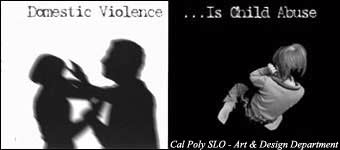Research on the Effects of Childhood Stress on Health Across the Lifespan
Stress is an inevitable part of life. Human beings experience stress early, even before they are born. A certain amount of stress is normal and necessary for survival. Stress helps children develop the skills they need to cope with and adapt to new and potentially threatening situations throughoutlife.
Support from parents and/or other concerned caregivers is necessary for children to learn how to respond to stress in a physically and emotionallyhealthy manner.The beneficial aspects of stress diminish when it is severe enough to overwhelma child’s ability to cope effectively. Intensive and prolonged stress can lead to a variety of short- and long-term negative health effects. It can disrupt early brain development and compromise functioning of the nervous and immune systems. In addition, childhood stress can lead to health problems later in life including alcoholism, depression, eating disorders, heart disease, cancer, and other chronic diseases.
The purpose of this publication is to summarize the research on childhood stress and its implications for adult health and well-being. Of particular interest is the stress caused by child abuse, neglect, and repeated exposure to intimate partner violence (IPV). We hope this publication provides practitioners, especially those working in violence prevention, with ideas about how to incorporate this information into their work.
Read the full publication here, The Effects of Childhood Stress on Health Across the Lifespan
The Effects of Childhood Stress on Health Across the Lifespan is a publication of the National Center for Injury Prevention and Control of the Centers for Disease Control and Prevention.

Effects of Family Violence on Children

The brains of these children become increasingly “tuned” for identifying possible sources of danger, said U.K. researchers who used functional imaging to monitor brain activity.
When the study authors showed pictures of angry faces to children with a history of abuse, the children’s brains showed increased activity in the anterior insula and amygdala, which are involved in detecting threat and anticipating pain.
These changes don’t indicate brain damage but are the brain’s way of adapting to a challenging or dangerous environment, study author Eamon McCrory, of University College London, explained.
The study appears in the Dec. 6 issue of the journal Current Biology.
“Enhanced reactivity to a biologically salient threat cue such as anger may represent an adaptive response for these children in the short term, helping keep them out of danger,” McCrory said in a journal news release. “However, it may also constitute an underlying neurobiological risk factor increasing their vulnerability to later mental health problems, and particularly anxiety.”
The findings are important because of the large numbers of children who are exposed to family violence.
“This underlines the importance of taking seriously the impact for a child of living in a family characterized by violence. Even if such a child is not showing overt signs of anxiety or depression, these experiences still appear to have a measurable effect at the neural level,” McCrory said.
SOURCE: Current Biology, news release, Dec. 5, 2011

